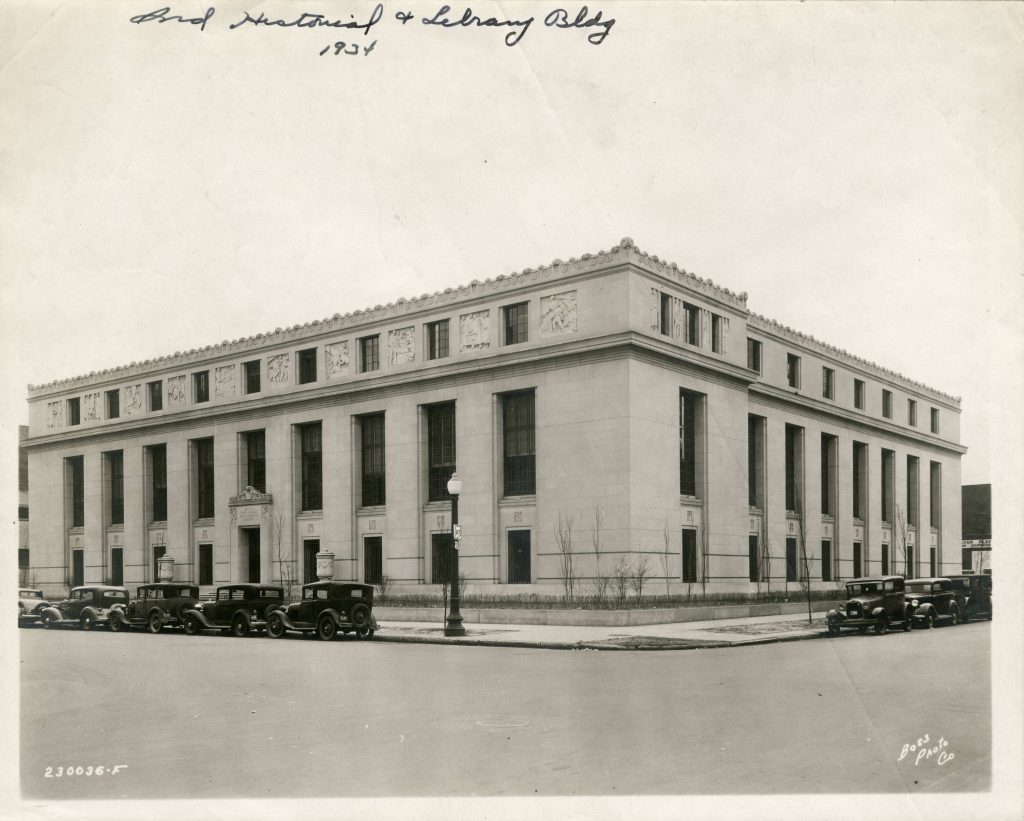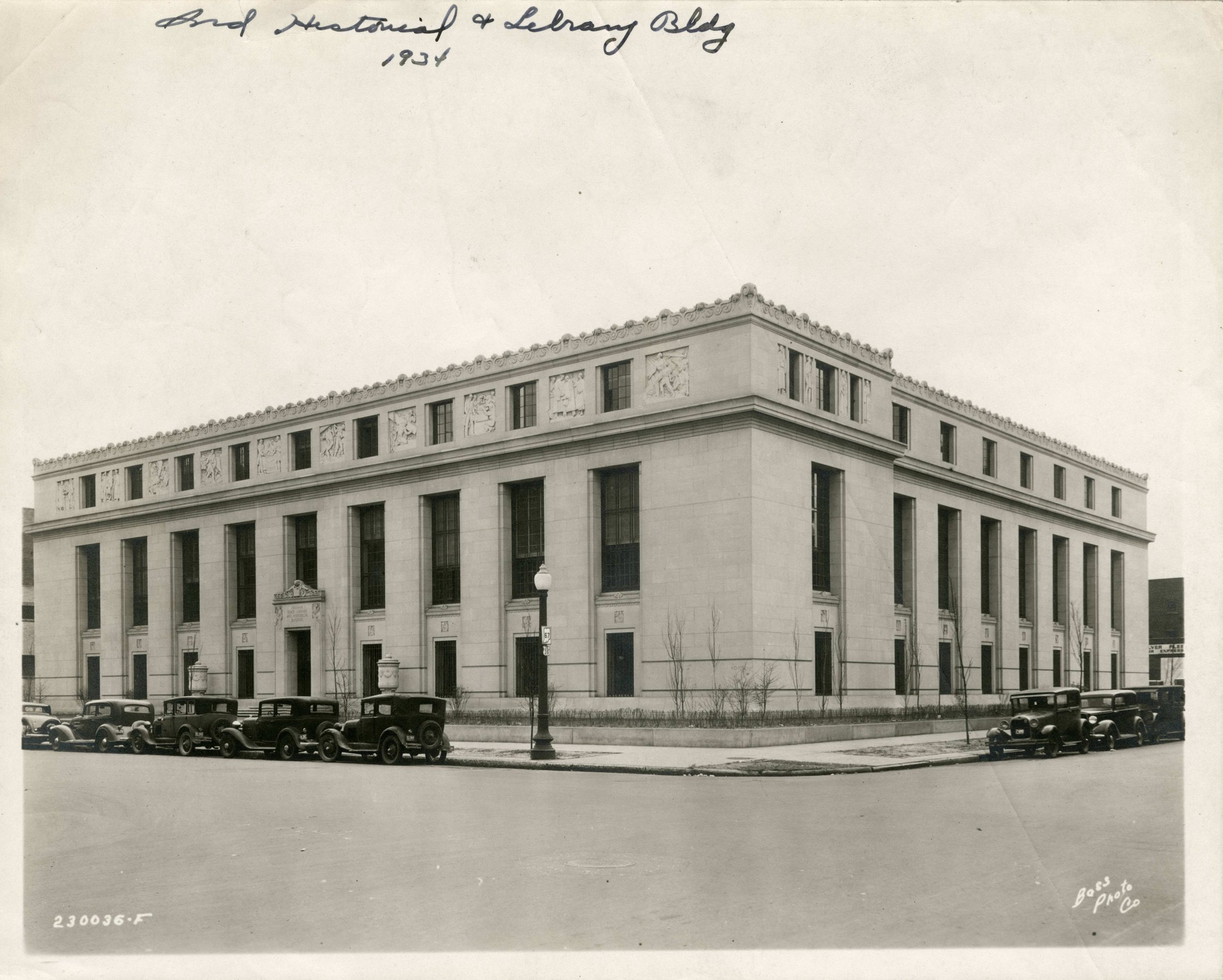The largest and one of the oldest libraries in the state, the Indiana State Library was established in 1825 to provide library service to the legislature, state government officials, and other governmental personnel. The secretary of state served as the librarian and was on the Board of Library Commissioners along with the state auditor, treasurer, and the governor.

In 1841, the library was designated as a separate agency and an office of librarian was established. This position was a political one and selection was made by the General Assembly for a three-year term. Candidates for this office were normally members of the majority party in the legislature with the position being viewed as a reward for party loyalty and service. The office went through 21 librarians between 1841 and 1897. Between the high turnover in the office and the lack of consistency and direction, the library achieved only minimal success in its intended purpose.
In 1895, the library was placed under the control of the State Board of Education, which soon after also assumed responsibility for selecting the state librarian. The first non-political librarian, William E. Henry, was appointed in 1897. With these changes, the institution began to establish itself as a unique and important library. In 1925, the governance of the State Library was again changed when the library and the Public Library Commission were merged and placed under the direction of the newly created Library and Historical Board—a five-member agency appointed by the governor.
Throughout most of its early history, the state library was housed at the . The library, along with the and the , moved to a new facility, the , located on the corner of Ohio Street and Senate Avenue in 1934.
While the Indiana State Library and the Indiana Historical Bureau both remain at this location, the Indiana Historical Society moved into its own building in 1999.
Over the years, the library’s services have expanded beyond its original responsibility to the state government. This included establishing the division of Indiana History and Archives in 1913, procuring and circulating reading material for the blind (1930s), creating a genealogical research collection (1934), acting as a depository for regional and state documents, and much more. Since its merger with the Public Library Commission, it has also worked closely with the state’s public libraries and has been instrumental in developing a strong library network in Indiana. The became a separate division in 1979 when it became part of the newly created Commission on Public Records.
By the 2000s, the Indiana State Library was divided into four service extensions: reference, lending, Indiana History, and library extension:
- Reference Division includes a general reference collection as well as a large collection of federal and state documents and handles incoming requests for information. The Genealogy Division falls within the Reference Division.
- Loan Division handles interlibrary loans, a system where libraries and organizations across Indiana can borrow materials for their patrons from the state library. This department also contains library materials for the blind as well as a lending music collection.
- Indiana History, Rare Books and Manuscripts, established in 1913, this division manages the state’s history collections which include books, maps, pictures, and manuscripts. This division also supports the library’s genealogy materials and services as well as its vast collection of Indiana newspapers. In 2018, the Indiana Historical Bureau merged with the library, becoming part of this division.
- Library Extension Division provides services and aid to public and school libraries in Indiana as well as continuing education for librarians. The division also distributes state government documents and publications to all libraries throughout Indiana.

Help improve this entry
Contribute information, offer corrections, suggest images.
You can also recommend new entries related to this topic.
